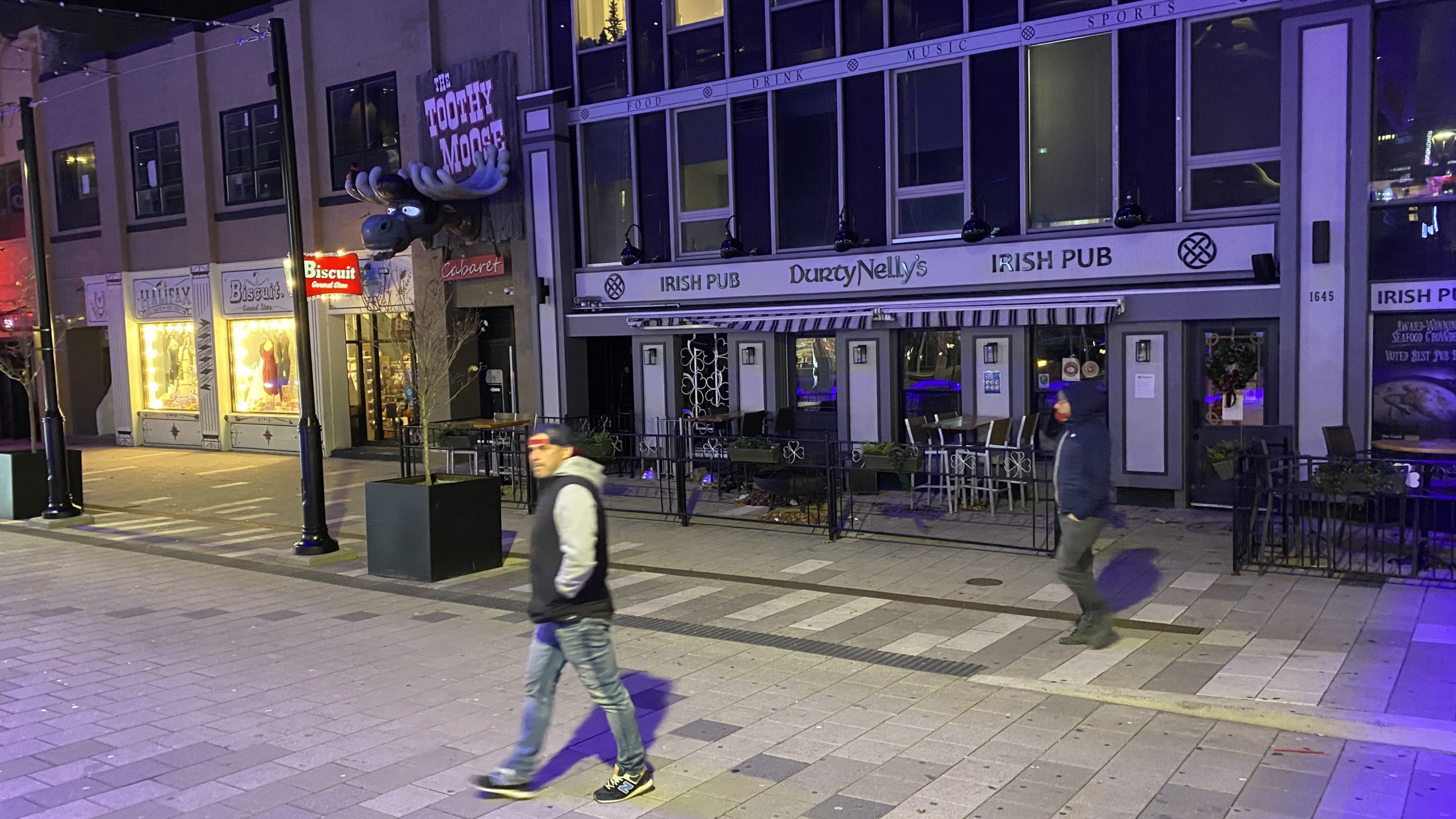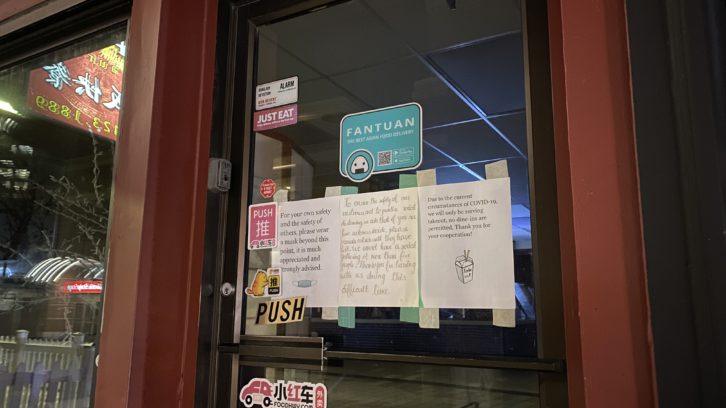Bars, indoor dining to close as Halifax faces partial COVID-19 lockdown
New measures take effect Thursday and will last two weeks, with a possible extension to follow

caption
Pedestrians cross in front of a closed Durty Nelly’s Irish Pub in Halifax's deserted entertainment district Tuesday night.The Nova Scotia government is imposing a partial lockdown in Halifax as it reports 37 new COVID-19 cases, the most in one day since April.
The province announced Tuesday that bars and restaurants need to close, except for takeout and delivery. People are being asked to avoid non-essential travel to and from western and central HRM, as public health officials attempt to keep the pandemic’s second wave from spreading beyond the city.
The new measures take effect on Thursday and will last two weeks, with a possible extension to follow. Libraries, museums and gyms will also be forced to close.
“Doing it now gives us the best opportunity to be able to lift the restrictions as early as possible,” Dr. Robert Strang, Nova Scotia’s chief medical officer of health, said at a news conference. “It also puts us into a better place to have early community and economic recovery. The longer we let things go on, the harder and longer it will be to recover from it.”
The province defines west and central Halifax as the area “from Hubbards to, and including, Porters Lake and the communities up to Elmsdale and Mount Uniacke in Hants County.”
Of the 37 new cases, 35 are in Nova Scotia’s central zone, which includes HRM. Strang said one of his main goals is to prevent the outbreak from spreading to the rest of the province.
He said shoppers who might come to Halifax for Black Friday are of particular concern. Public health officials have identified crowds of shoppers as a major source of potential infections, and stores’ occupancy limits are being reduced by 75 per cent compared to pre-pandemic levels.
The two cases not in the central zone are in the northern zone and the western zone. The western zone case is a student at Northeast Kings Education Centre in Canning. That school has been closed for the rest of the week to allow for cleaning and contact-tracing.
Because of COVID-19’s long incubation period, Strang expects case counts will likely continue to rise for another 10 days.
“Just because we’ll have more cases in the next few days doesn’t mean what we’re doing has failed,” he said.
Strang added that, in Halifax, schools and offices are being allowed to remain open because they have not proven to be major sources of new infections. He said most of the new cases have been people between the ages of 18 and 35, who have contracted COVID-19 while socializing.

caption
Signs on the door of Argyle Street’s Taipan Express restaurant remind visitors of public health measures and announce a halt to dine-in service Tuesday night.The existing five-person gathering limit in Halifax will see stronger enforcement measures. Previously, the host of a gathering who violated public health guidelines could be fined $1,000. Now, everyone in attendance will receive a $1,000 fine.
Strang asked HRM residents to call the police if they see behaviour they think violates public health restrictions.
“Police can’t be everywhere,” he said. “One of the ways we can look after each other is to actually say, ‘Hey, hang on a second. What’s happening over there is putting me and the rest of my community at risk, and I’m going to ask for help from the appropriate enforcement officers.’”
Earlier Tuesday, the province asked anyone who has been in a Halifax bar or restaurant after 10:00 p.m. over the last two weeks to seek COVID-19 testing. In response to that announcement, more than 4,000 people have so far contacted public health authorities to book tests, Strang said.
Pop-up testing sites equipped with rapid testing kits that are faster and less reliable than laboratory testing are slated to appear at sites throughout the city. Strang said Nova Scotia is asking that only people who have been at bars or restaurants use the pop-up sites because capacity is limited.
Premier Stephen McNeil said at the news conference that he is aware the new restrictions will create hardship for HRM residents, but warned that public health will take precedence over economic considerations.
With new cases in Ontario, New Brunswick, Saskatchewan and Alberta reaching all-time highs over the weekend, McNeil said he believes aggressive intervention is necessary to prevent a much larger outbreak in Nova Scotia.
“We’re attempting in many ways to try to protect as best we can the livelihoods as best we can of all Nova Scotians while at the same time protecting their health,” he said. “The only way this will work is if every Nova Scotian believes the virus is outside their door, whether you live in Upper Granville or you live down in the south end of Halifax.”
Symptoms and testing
Common symptoms of COVID-19 include a fever, cough, sore throat, sinus congestion, headache and shortness of breath.
A list of locations where people may have been exposed to the virus can be found here.
Public health officials are asking anyone experiencing symptoms to fill out the province’s online self-assessment or call 811.
Anyone who has been at a Halifax bar or restaurant after 10:00 p.m. in the last two weeks is also asked to seek testing by calling 811 or visiting a pop-up test site.

